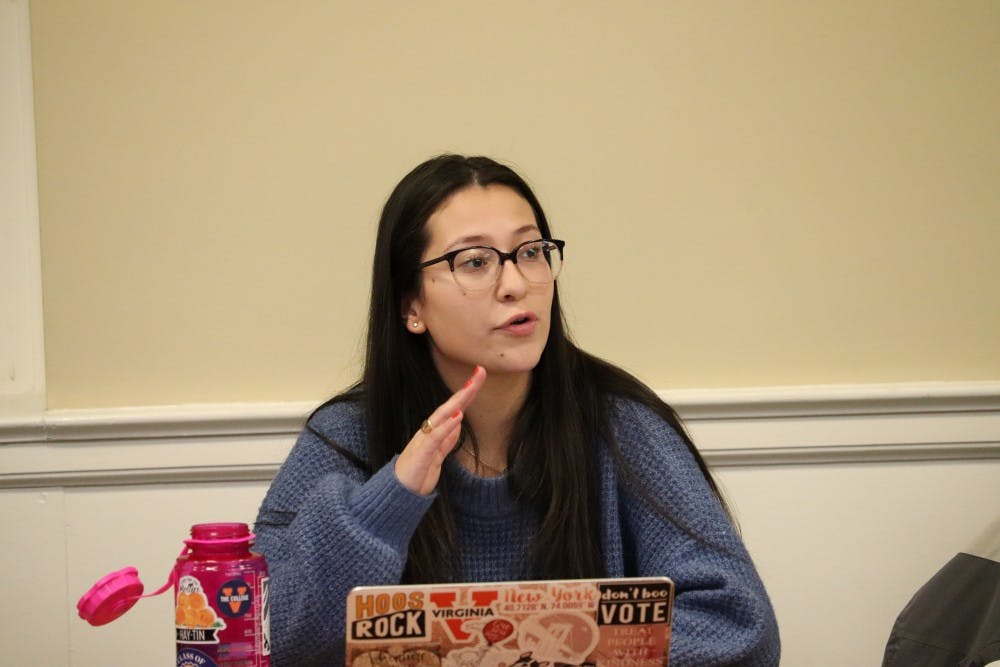Six courses offered in the upcoming spring 2019 semester will be taught by current University students, according to Megha Karthikeyan, a third-year Commerce student and the chair of the Academic Affairs Committee for Student Council.
Eight students will have the opportunity to teach their own classes through the Student Council-run Cavalier Education Program, which allows University students to design and teach original courses to their peers. According to the CavEd website, “The goal of the CavEd program is to give students the opportunity to take charge of their academic experience — to allow them to share their passion for and knowledge of subjects outside the traditional curriculum.”
It is a four-step process for student professors to design their own curriculum. In order to apply to teach their own class, they must first take INST 3150, the CavEd Pedagogy Seminar. While enrolled in INST 3150, students draft their own syllabus and develop a classroom model for the course they want to teach. Then they find a faculty sponsor, and finally, apply to the CavEd committee for approval to teach the syllabus they developed in INST 3150.
Three of the six classes offered by students this upcoming semester relate to film. There are also classes on Esperanto and internationalism, the history of Asian American activism and philosophy and physics.
Once the class is approved, student professors have the opportunity to apply for funding. Student Council’s 2018 annual budget allocated $500 for classroom materials for the Cavalier Education program.
Student-taught classes are usually one or two credits, Karthikeyan said. They can only be taken for credit or no credit.
Third-year College student Savannah Edwards said that taking the Pedagogy Seminar helped her to develop the syllabus she will use. Edwards will be co-teaching an introductory film production course next semester, along with third-year College student Douglas Braye.
“It was really interesting to compare the effectiveness of different learning styles and teaching methods in that class, because a lot of them wouldn’t work in my class but the ones that would work for my class wouldn’t work for others,” Edwards said.
Course enrollment for student-taught classes is capped at 20. Karthikeyan said that the class size for these courses was intentionally kept small.
“We want to make it a very intimate kind of class so students can actually learn from their peers and get a good understanding of what’s happening in the course,” Karthikeyan said. “The idea of these classes are not like big major lecture-style topics either, they’re very specific topics, and that’s easier to do when you’re in a smaller setting.”
While there is no age restriction on becoming a student professor at the University, Karthikeyan added that most of the student professors tend to be third- or fourth-years, which gives them time to build their knowledge in the subject they will teach on.
“The topic you’re teaching about … can’t just be something you’re interested in, it has to be ‘Oh, I’ve done research in this,’ or ‘I’ve worked in this,’ or ‘I have some kind of expertise in this type of field,’” Karthikeyan said.
Some of the student-taught classes seek to fill a perceived gap in academic opportunities at the University. Third-year College student Eileen Ying will be teaching History of Asian American Activism in the spring. Ying said that she felt her class provided an opportunity for students interested in learning more about Asian American history.
“U.Va. has notoriously slim pickings in the field of Asian American Studies,” Ying said. “That’s a greater structural problem that I’m also interested in, but I personally was interested in the topic and couldn’t find the academic resources here, so I did a lot of reading on my own.”
Ying added that she felt her class added something new to the University’s course options.
“I feel like it fills an important gap in U.Va.’s current selection of courses,” Ying said. “I think it’s really important for me and for other Asian American students and for anyone who’s just interested in the topic to have that choice at U.Va.”
Ying’s class currently has 19 students registered to take it in the spring.







